Personal Is Political: The Necessity of Spaces for Black Vulnerability
By Antonia Randolph
Introduction
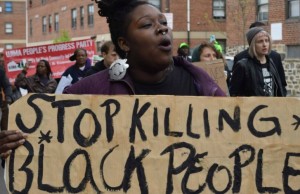 Caring for the black interior, or the inner life of black people, is necessary for political action and for the emotional well-being of the black community. Put simply, we must create spaces for black vulnerability if we want to care for our humanity. Black vulnerability happens within the context of white supremacy and other forms of oppression, but it is not defined by that context. How can we be vulnerable with ourselves and others under those conditions? I want to describe three different types of black interior spaces and outline the dangers and possibilities within them. Specifically, I’ll talk about the private-private space, where we think about how it feels to be black, the public-private space, where we share private thoughts about what it means to be black in places where others can overhear, and the private-public space, where we respond to things that bring us shame and might be stigmatizing if they became public. These spaces are metaphors for different moments in ordinary black life, which I have artificially divided to highlight the tensions that define each space. I’ll end by talking about a fourth space, what I call “the black now“, the in-the-moment blackness that is not about rupture, the space between us and ourselves, but is instead about the times when we feel seamless and most whole.
Caring for the black interior, or the inner life of black people, is necessary for political action and for the emotional well-being of the black community. Put simply, we must create spaces for black vulnerability if we want to care for our humanity. Black vulnerability happens within the context of white supremacy and other forms of oppression, but it is not defined by that context. How can we be vulnerable with ourselves and others under those conditions? I want to describe three different types of black interior spaces and outline the dangers and possibilities within them. Specifically, I’ll talk about the private-private space, where we think about how it feels to be black, the public-private space, where we share private thoughts about what it means to be black in places where others can overhear, and the private-public space, where we respond to things that bring us shame and might be stigmatizing if they became public. These spaces are metaphors for different moments in ordinary black life, which I have artificially divided to highlight the tensions that define each space. I’ll end by talking about a fourth space, what I call “the black now“, the in-the-moment blackness that is not about rupture, the space between us and ourselves, but is instead about the times when we feel seamless and most whole.
I came to these ideas from a moment when I needed to withdraw from the spectacle of black death flooding social media. What can I say about the repeated images of black people being murdered, captured with a pornographic level of detail, where no one is held accountable for their murder? What can I say that does not make it seem like the routine murder of black people is tolerable? Does trying to interpret or bring some sense to the routine murder of black people by law enforcement, broadcast across the world, make this moment seem inhabitable? Does it make the fact of violent black death seem even more common sense? I don’t want to make the routine murder of black people make sense. I want it to stick in our throats, raw and undigested and incapable of being assimilated into the body politic. I will say that the spectacle of black death is not new, nor is white indifference to it. It wasn’t so long ago when ordinary white folk brought their children to see the lynching of black people and created postcards as mementos from the outing. What have white people been taught about the state and non-state murder of black people except that blacks are the kind of people that can be killed with impunity?
So, I had to withdraw, which is not to say retreat, from social media to protect my heart. I had to turn away from the unearned intimacy of watching people die. I felt hurt, angry, despairing, terrified by how indifferent white America was to the routine murder of black people by law enforcement and wannabe law enforcement. But that turning away made me think about the political implications of withdrawing, the political possibility of the space away from dominant culture. The space to be vulnerable and to feel. We give up too much of our humanity if we are not allowed to feel. Let me turn now to three different spaces where blacks experience particular forms of vulnerability that are circumscribed by white supremacy, but not defined by it.
The Private-Private Space
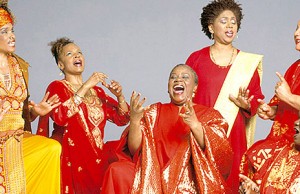 This is the space of the individual and collective black psyche. This is me talking to myself within my own heart and mind. It’s where we answer the question of how do I feel about myself/ how do we feel about ourselves as blacks. I withdrew into the sanctuary of my heart to process what it felt like to witness the ritualized spectacle of black death. I wanted to know that I wasn’t crazy to feel so devastated when the rest of the world went along as though nothing was happening. But as other scholars have said, blacks are not alone even within the precincts of their own hearts and minds. “One ever feels his two-ness”, Du Bois wrote in The Souls of Black Folk, “an American, a Negro; two souls, two thoughts.” What’s standing between me and myself when I think about how it feels to be black right now? Double consciousness, the awareness of how the dominant culture fails to register the horror of this moment.
This is the space of the individual and collective black psyche. This is me talking to myself within my own heart and mind. It’s where we answer the question of how do I feel about myself/ how do we feel about ourselves as blacks. I withdrew into the sanctuary of my heart to process what it felt like to witness the ritualized spectacle of black death. I wanted to know that I wasn’t crazy to feel so devastated when the rest of the world went along as though nothing was happening. But as other scholars have said, blacks are not alone even within the precincts of their own hearts and minds. “One ever feels his two-ness”, Du Bois wrote in The Souls of Black Folk, “an American, a Negro; two souls, two thoughts.” What’s standing between me and myself when I think about how it feels to be black right now? Double consciousness, the awareness of how the dominant culture fails to register the horror of this moment.
What can return me to myself? First, I had to remember that the idea of blackness was the product of white supremacy. Race was invented by whites to justify their extraction of wealth and land from other so-called races. Blackness, and whiteness for that matter, always carries the residue of white supremacy even if black identity could never be reduced to the experience of being victimized by white supremacy. That is to say, internalized racism and its distortions is an outgrowth of thinking about race in the first place. But I can find other mirrors. I am reminded of lyrics from two songs by the black a cappella ensemble Sweet Honey in the Rock. “There were no mirrors in my Nana’s house/cause the beauty of everything was in her eyes”, one song tell us. Another laments that “I am sitting here wanting memories to teach me to see the beauty in the world through my own eyes.” The lyrics urge us to find sanctuary in the hearts of other people who see us as we see ourselves. Turning inward is not selfish, nor is it ever only individual. It is a collective strategy for protecting the tenderness of our hearts, of affirming our vision, “Yes, I am seeing that right”, in a world that seeks to efface us
The Public-Private Space
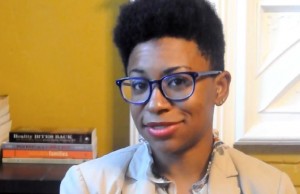 This is the space where black people think out loud about what it’s like where they’re from, what it means, and what can be done about it. It’s black folks interpreting black lives for themselves and with each other. Collectively, this talk amounts to an expression of black subjectivity, a specifically black point of view on life. It includes, but is not limited to, explicitly political conversations about how black people can fight oppression. But I am thinking especially of the messier talk that does not come packaged in a party line, but instead reflects the unwieldiness of blacks sorting through the meaning of their experiences. Black Twitter is a great example of blacks expressing a collective subjectivity that can be overheard by others, but is addressed to blacks. The ubiquity of social media has created the unprecedented ability to plug into what black people from all walks of life are thinking in an instant. I feel like I am part of a single black organism when I logon to my Facebook feed and everyone is talking about a topic that has been ignored by the mainstream media.
This is the space where black people think out loud about what it’s like where they’re from, what it means, and what can be done about it. It’s black folks interpreting black lives for themselves and with each other. Collectively, this talk amounts to an expression of black subjectivity, a specifically black point of view on life. It includes, but is not limited to, explicitly political conversations about how black people can fight oppression. But I am thinking especially of the messier talk that does not come packaged in a party line, but instead reflects the unwieldiness of blacks sorting through the meaning of their experiences. Black Twitter is a great example of blacks expressing a collective subjectivity that can be overheard by others, but is addressed to blacks. The ubiquity of social media has created the unprecedented ability to plug into what black people from all walks of life are thinking in an instant. I feel like I am part of a single black organism when I logon to my Facebook feed and everyone is talking about a topic that has been ignored by the mainstream media.
At least two pressures threaten the public-private space. One pressure is the white gaze. The conversations are held in public by necessity, but they are meant to be addressed to other blacks. Thus, the space is structured by the fact the dominant group can overhear this conversation that is meant be between black people. So one pressure on the public-private space is how to be understood by those you wish to address, while resisting the regulation of the dominant culture. There is a long of history of blacks evading white regulation by using coded language to communicate private meanings in public. Think of the spirituals that could be sung in front of the master, yet gave instructions for how slaves could escape from the plantation to those who could interpret the code. The backlash Beyonce faced due to her recent video that centered blackness and spoke out against police brutality is evidence of how whites seek to regulate black subjectivity. Closer to home, my friend Zandria Robinson was attacked by conservative media, including rape and death threats, when her blog, New South Negress, critiqued white people who said that the Confederate flag was not still a symbol of white supremacy. There is a pressure from outside of the black community to stifle what blacks can say out loud.
The other pressure is internal and has to do with the ways we constitute black community. Who do we mean when we say the black community, which blacks are allowed to tell their stories about what it means to be black? Again, this is an old problem. Black feminists long ago identified sexism and heteronormativity as threats to the black community. We can’t get free, if only some black lives matter and only some blacks get to speak. Hip-hop culture exemplifies the possibilities and perils of thinking out loud about blackness in the current moment.
Since the late 1970’s, hip-hop has provided a widely consumed text about what it’s like to be black in the United States. Rap presents itself as the truth about a certain segment of the black community, the black poor and working-class. Its reliance on the first person invites a slippage between rappers and the stories they tell. Rap is both hyperlocal and diverse. MC’s are constantly spelling out, as Missy Elliott would have it, “how they do it where they from.” From his songs, we know that Jay-Z grew up in the Marcy Projects, not just that he’s from Brooklyn. Rap is diverse; rap has grown from its origins in the South Bronx to become the music that the oppressed worldwide choose to describe their existence. It was from listening to rap from the East Coast to the West Coast that I learned how common racial profiling and police brutality was in the black community. And rap’s been a space for imagining seemingly impossible futures. “If I ruled the world,” Lauryn Hill sang on the Nas song, “I’d free all my sons.” For these reasons, rap has been an invaluable space for the interpretation of black life.
Yet, hip-hop positions its audience as listening in on conservations between (mainly) black men about the world and their place in it. Its point of view is cisgendered, heterosexual, and centered around masculinity, even when the MCs are female. That ethos is increasingly out of step in spaces where black organizing happens and on black social media. Black Lives Matter was started by three, out, queer black women who were friends. Alicia Garza, one of the founders, ended a love note to black people she posted to Facebook in the wake of George Zimmerman’s acquittal with the phrase “Our Lives Matter. Black Lives Matter.” The Black Lives Matter Movement has insisted that the gamut of black lives matter: Black Trans and Gender Non-comforming Lives, Black Queer Lives, Black Immigrant and Undocumented Lives, Black Sex Worker Lives, all Black Lives. The disjuncture of that sentiment with the one espoused in hip-hop is stark when even a MC like J. Cole raps about the difference between his “LA sisters” and his “LA hoes.” That distinction doesn’t fly; both sisters and hoes are figments of a sexist imagination, they are two sides of the same sexist coin. Hip-hop and other forms of black popular culture have to catch up to the progressive sentiments on the ground and in spaces like Black Twitter if they want to stay relevant. There are no throwaway people.
The Private-Public Space
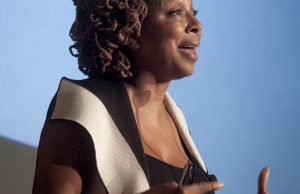 This is black people talking about things marked as “private” because they could cause stigma or shame if they were made public. I am thinking especially here about why it is hard to talk about and address sexual and domestic violence within the black community. To be clear: the black community does not have more sexual and domestic violence than other races. Yet, we do have particular racialized reasons for being silent about those forms of violence. And I isolate sexual and domestic violence from street crime because we do see organizing to fight street violence as central to racial justice. Blacks have seen sexual violence as political when done by white men against black women, but not otherwise. For instance, Danielle McGuire’s book At the Dark End of the Street shows that the desire to protect black women from sexual violence fueled much of the organizing during the Civil Rights Movement. Rosa Parks was not a tired old woman, but a secretary for the Montgomery NAACP. She investigated the gang rape of a black woman, Recy Taylor, by white men and helped organize to bring the men to justice. More recently, black scholars like Kimberlé Crenshaw have brought visibility to the case of Daniel Holtzclaw, a white police officer who targeted black women for sexual assault because he didn’t think anyone would care about them.
This is black people talking about things marked as “private” because they could cause stigma or shame if they were made public. I am thinking especially here about why it is hard to talk about and address sexual and domestic violence within the black community. To be clear: the black community does not have more sexual and domestic violence than other races. Yet, we do have particular racialized reasons for being silent about those forms of violence. And I isolate sexual and domestic violence from street crime because we do see organizing to fight street violence as central to racial justice. Blacks have seen sexual violence as political when done by white men against black women, but not otherwise. For instance, Danielle McGuire’s book At the Dark End of the Street shows that the desire to protect black women from sexual violence fueled much of the organizing during the Civil Rights Movement. Rosa Parks was not a tired old woman, but a secretary for the Montgomery NAACP. She investigated the gang rape of a black woman, Recy Taylor, by white men and helped organize to bring the men to justice. More recently, black scholars like Kimberlé Crenshaw have brought visibility to the case of Daniel Holtzclaw, a white police officer who targeted black women for sexual assault because he didn’t think anyone would care about them.
I believe that the metaphor that likens blacks to one big family is a key obstacle to talking about intimate violence in the black community. The silences we keep about intimate violence, the way people rally around the accused and not the accuser is akin to the scapegoating that happens in families where incest or some other type of violence has happened. The sense of betrayal, denial, and anger at the accuser are hallmarks of people confronting violence within families. These same set of emotions shape the reaction to allegations that Bill Cosby and R. Kelly have committed sexual assault or of people like Ray Rice who committed domestic violence.
We should take the family metaphor seriously and look to work on sexual and intimate partner violence for models of holding people accountable for intimate violence within the black community. We need more informed and open conversations about intimate violence to prevent more violence from happening, to allow victimizers to be held accountable, and to get victimizers and victims the help they need. To that end, I want to shout out the Just Beginnings Collaborative, a new organization that builds capacity to end child sexual abuse, especially within communities of color. Incite! is an older organization that centers their anti-violence work on the most marginalized communities. We can use lessons from both of these organizations as blueprints for talking about intimate violence within the black community. At minimum, we have to make undoing patriarchy and heteronormativity central to racial justice. We must rethink black masculinity. As part of that work, we need to talk about black male vulnerability, including men and boys as survivors of sexual violence.
We need space to be vulnerable about imagining utopia so that we can dream up seemingly impossible futures for black folks. We need a radical black imagination to imagine our way into a livable future. At the risk of sounding naïve, I shared my thoughts about black interiority with you. We need the space to risk failure, where we will be received by a critical, but ethical community. Zandria Robinson recently taped a conversation with Kiese Laymon, another Southern black writer whose subject is how blacks can get free. They talked about the importance of “showing your work”, a central theme of Laymon’s novel Long Division. We need to create spaces where we can be messy in public, not as an indulgence, but as a necessary aspect of growing the radical black imagination.
The Black Now
Finally, I want to gesture to a fourth space, the black now. The black now is when I am unthinking and I experience my blackness as a seamless space. I am in the moment and in easy community with others. I think of a time when I was 12 or 13 and had a swap meet with my brother and his friends to trade comics. We each brought our boxes of comic books and met in my parents’ living room. After weeks of drawing our favorite images from the pages and re-reading our favorite scenes, we were finally ready to trade our comics with another who could appreciate our fandom. I think about the easy communion of that moment, three boys and a girl, poring over each other’s treasures hoping to find a gem in someone else’s collection. I also think about how I have never seen that image of black children represented on TV or in movies. Our race, our gender, our class mattered, but in that moment I felt content, un-self-aware, like I belonged. I forgot myself in that moment or more like I was myself and it was good. It was enough.
I want to end where I began, with lyrics from Sweet Honey in the Rock. I’ve been turning to their song “I Remember, I Believe” for comfort in recent months. May it comfort you.
I don’t know how my mother walked her trouble down
I don’t know how my father stood his ground
I don’t know how my people survive slavery
I do remember, that’s why I believe.
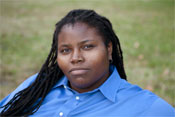 Antonia Randolph is a lecturer in the Department of Sociology, Social Work, and Anthropology at Christopher Newport University, Virginia. Her research and teaching interests include diversity discourse in education, multicultural capital, non-normative black masculinity, and the production of misogyny in hip-hop culture. She has been published in Anthropology and Education Quarterly, Youth and Society, and Race, Gender, and Class. In 2013, her book The Wrong Kind of Different: Challenging the Meaning of Diversity in American Schools was published by Teachers College Press. Her current book project, “That’s My Heart,” examines portrayals of intimate relationships and of black inner-life in hip-hop culture. Randolph holds a BA in Sociology from Spelman College, and a Ph.D. in Sociology from Northwestern University.
Antonia Randolph is a lecturer in the Department of Sociology, Social Work, and Anthropology at Christopher Newport University, Virginia. Her research and teaching interests include diversity discourse in education, multicultural capital, non-normative black masculinity, and the production of misogyny in hip-hop culture. She has been published in Anthropology and Education Quarterly, Youth and Society, and Race, Gender, and Class. In 2013, her book The Wrong Kind of Different: Challenging the Meaning of Diversity in American Schools was published by Teachers College Press. Her current book project, “That’s My Heart,” examines portrayals of intimate relationships and of black inner-life in hip-hop culture. Randolph holds a BA in Sociology from Spelman College, and a Ph.D. in Sociology from Northwestern University.




Pingback: Of Interest (15 May, 2016) | Practically Marzipan